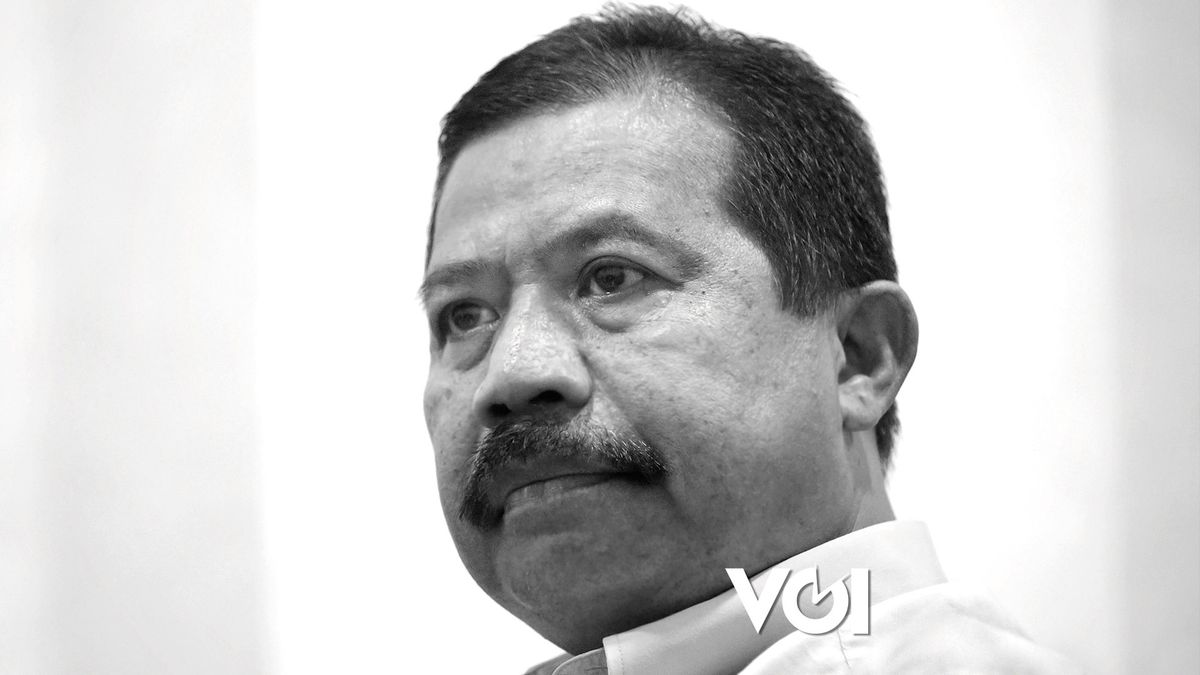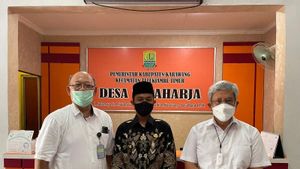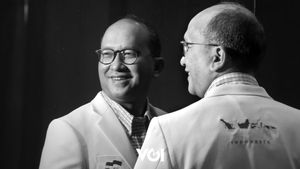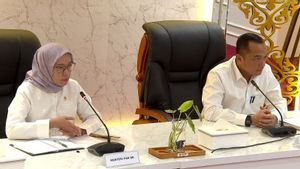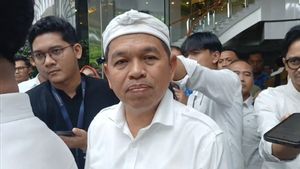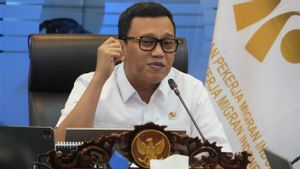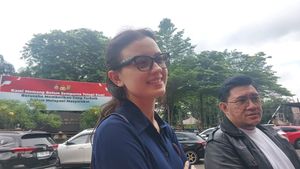Villages in Indonesia have different developments from each other. There are those who have achieved the predicate of self-sufficient and self-developing, but there are also those who are still below it as self-reliant. Various problems arise in the village from these various levels. According to Arifin Abdul Majid, S.Sos., MM., as Chair of the Apdesi DPP (Association of All Indonesian Village Governments), all village levels have their own problems. The situation changed drastically with the advent of Law No. 6 of 2014. Villages have become more empowered in overcoming problems that arise.
***
In general, there are significant differences in village atmosphere before the existence of the Village Law. “Before there was the Village Law, the funds for the village were only around Rp20 million for one year. Now after the Village Fund Law, the village government gets Rp1 billion. This is not a small number of funds for the purposes of physical and non-physical development in the village if it can be optimized. This is what makes villages more empowered and able to overcome problems that arise,” said Arifin.
He explained that the problems that arise from one village to another are not the same. Many factors influence, including the social environment, the topography of the area, and the state of the community. If examined based on the classification of self-reliant, self-developing, and self-sufficient villages, he said, the problems that arose could be described in more detail. “Each village category has a different problem and the way to solve it, cannot be the same from one village to another. Self-reliant villages (underdeveloped villages) are still lacking, while self-developing villages (developing villages) are much better. And the most tolerable is a self-sufficient village (developed village). However, there are still problems that arise in villages like this," he explained.
Referring to data from the Central Statistics Agency (BPS) to date, the number of villages in Indonesia is 81,616. East Java Province has the highest number of villages (8,576 villages). The number of these villages are spread over 34 provinces, 514 regencies, and 7,230 sub-districts. According to Arifin, from this number of villages, Apdesi members are spread throughout Indonesia. "From the number of villages that have become members of Apdesi so far, there are more than 40 thousand spread across 33 provinces, 514 regencies, and 7,230 sub-districts. This number is not final because we are still collecting data and the number who will become members will continue to grow," he said.
As chairman of Apdesi, on various occasions meeting with the Village Heads who are members, Arifin constantly reminds them to be careful in managing village funds. Existing funds must be used as widely as possible for the benefit of the people and the prosperity of the village, not for personal interests or other things that have no correlation with the interests of the village people," he told Edy Suherli, Savic Rabos, and Irfan Medianto from VOI who met him at the Apdesi DPP Office, some time ago. Here is the full excerpt.

What is the history of the establishment of Apdesi, what is the need for the Village Head to unite in a forum or association?
Talking about Apdesi cannot be separated from the duties that I once carried as the Head of Bojongsari Village, Bojongsoang District, Bandung Regency. I served from 1998 to 2007. On November 7, 1999, friends of the village heads in Bandung regency, in Cangkuang Kulon, Dayeuhkolot district, Bandung regency, agreed to establish an Association for Village Heads throughout Bandung Regency. At that time I was appointed as chairman. But two years later in 2001 in Sumedang, there was a change of name to the Association of Indonesian Village Governments (Apdesi). In 2003 Apdesi West Java was formed, I was also appointed as chairman.
The Apdesi organization is getting bigger then?
Yes, it is growing and more and more villages are involved. In April 2005 in Yogyakarta, there was a meeting of the association of village heads throughout Indonesia. At that time, Apdesi was declared nationally. This forum is also known as Apdesi's first National Conference. Elected as the first general chairman Suwardi S.Pd., MM., from Cilacap Regency, Central Java. While I was the Secretary-General, I was trusted to be the Secretary-General. In March 2011, the National Conference was held again at Pondok Gede Hajj Dormitory, Jakarta, by acclamation H. Sindawa Tarang SH., MM., from Takalar, South Sulawesi, was elected as Chairman and I accompanied him as Secretary-General.
However, internal dynamics occurred, in 2014 the Mukernas was held in Yogyakarta which was attended by Mr. SBY. At that time, Suhardi Buyung decided from Lampung as chairman until the end of the 2016 term. Then in 2015, a National Working Meeting was held again at the Solo Hajj Dormitory, which was attended by Mr. Jokowi, who recommended that the 2016 Apdesi National Conference be scheduled. Before the National Conference had a meeting with the team from Mr. Sindawa Tarang to join the National Conference. But on the way, there was no meeting point. Finally, the National Conference took place without the participation of Mr. Sindawa Tarang's camp. In the National Conference held in Lampung, Mr. Suhardi Buyung was again elected as the General Chair and I as the Secretary-General. At the next National Conference in 2021, I was elected as Chair of Apdesi for the term of 2021-2026.
There are many organizations that embrace the Village Head and Village Apparatus, why not just unite?
Efforts to unite the organization that houses the Village Head have been carried out several times. Mr. Buyung, Mr. Sindawa Tarang, and Mrs. Wargiyati were invited once, who had founded Papdesi (Association of Village Government Apparatus). This meeting was also attended by the Director-General of Village Administration, Nata Irawan, from elements of the DPD RI Mr. Akhmad Muqowam, and from the DPR RI Mr. Budiman Sudjatmiko. But hit a dead end. Finally, Mr. Sindawa Tarang held his own National Conference in Solo and confirmed himself as Chairman. Meanwhile, we walked with Apdesi and Mrs. Wargiyati with Papdesi.
How about the many organizations that oversee the village head and village government apparatus?
Each one walked, we walked and they walked too. But even though the name is the same, the articles of association and bylaws are different. It is legal to form an organization, it is the right of every citizen to associate and assemble, and also to form an organization. It's all guaranteed by law. However, the name of the organization cannot be the same as that of a pre-existing organization. For us, Apdesi as an organization on a national scale has been registered with the Ministry of Law and Legislation. There are 80,000 villages in more than 33 provinces, so it won't be covered with just one organization.
So let the public judge how many names of these associations?
I think the public can judge which organizations really work for the welfare of their members and help their members, and which organizations only channel the ambitions of their management. Later time will show it all. That's why there is already an association of village heads, there is a union of village officials, and so on, go ahead. Up to now, Apdesi has not charged village officials and member villages for contributions. And so far in carrying out various activities, it is still borne by the management and other sources that are not binding.

What are the problems faced by villages, ranging from self-reliant villages, self-developing villages, and self-sufficient villages?
Talking about the problems faced by the village, of course, the self-reliant village, the self-employed village, and the self-sufficient village are not the same. And the solution is different. In general, self-reliant villages, or in other terms called underdeveloped villages or poor villages have the problem of non-existent village facilities even if there are very few. Then HR is also still lacking and needs to be added. Usually, these self-developing villages are far from the city or isolated. Natural resources are almost non-existent, so they are very dependent on government assistance.
Meanwhile, for self-employed villages or also called developing villages, the situation is better than self-reliant villages. However, the existing facilities still have to be improved, the human resources also still have to upgrade their skills and abilities. For this self-employed village, the income already exists, although it still depends on funding from the government for development. And the most favorable condition is a self-sufficient village or in other terms a developed village or an independent village. The condition is much better than self-reliant and self-sufficient villages. Village public facilities already exist and are good, but do need to be improved. Village human resources are also quite good although they still have to be improved because of the times and technological advances sometimes run faster. In terms of regional income, it is already good, some already have BUMDes which are a source of village income, but it's not that they don't have problems. The problem is how to maintain or even improve what has been achieved in order to continue to survive.
After the existence of Law No. 6 of 2014 concerning Villages, is it true that villages are more meaningful and empowered?
The Village Law has existed since the Dutch era. After Indonesia's independence, how many times have the names changed. The last year Law no. 6 2014. The law contains elements of extraordinary state alignments, including in the article on Village financial sources. The state provides input for village finances from the APBD from the central and regional balance funds, land and building tax revenue sharing, and user fees. There is also assistance from the APBN to villages. Previously, assistance for villages was around Rp20 million per year, now it is Rp1 billion for each village. With such financial capacity, the village should be more meaningful and more empowered.
SEE ALSO:
The village has received funds every year, what is the use of the funds?
The village head and the community can provide a planning design for implementing village development governance, increasing village community empowerment through the Village Deliberation Institution. Now the funds are there, it's just a matter of proper use. If not, it could lead to legal problems. Because everything that has been issued must be accounted for. So far, there have been those who have used village funds in accordance with existing regulations, but some have not, so we see that several village heads and village officials have to deal with the authorities. Yes, that's if you can't use the funds according to the existing rules.
What are your suggestions so that the use of Village funds is appropriate and on target?
The village has now received funds from the APBN and APBD. In some villages, the utilization of village funds has been great, so that their income is increasing from the management of existing funds. The key is deliberation with elements of the Village Consultative Body, LPM, Community Leaders, Women's Groups, and others to be involved in managing this village fund. Please prioritize the use of funds for anything. The village head should not be trapped in his own game. We would like to thank the government, which, through the mandate of the law, has entrusted the village to manage its finances independently.
It would be great if every village had a BUMDes (Village-Owned Enterprise), the existing funds could rotate in the form of a productive business, so far what has happened in the field?
Funds received from the APBD and APBN would be great if they could be managed through BUMDes. The economic potential in the village can be gathered. Residents who work as traders, farmers, and other professions can be tricked through these BUMDes. By being managed by the village and involving the village community, money circulates in the village. With the circulation of money in the village, which is valued at Rp1 billion, it can add a new workforce, reduce poverty, and increase people's income. Hopefully, these BUMDes can really play a role in lifting the community's economy. In this case, the Village Head is only a commissioner, who serves as business director and other positions are other village residents.
Elections are approaching, how does Apdesi assert its independence amidst the tug-of-war between existing political parties?
I emphasize to the management and members not to easily support pairs of candidates who are competing in the general election or post-conflict local election. So the organization must remain independent and not use the organization to support certain political parties or candidates from political parties who are competing in the post-conflict local election. If individuals want to channel their political aspirations, please do so, that is the right of each. That's what can be done to maintain the independence of the organization in this case Apdesi. As a result, it will be difficult for the organization to support one candidate, but that candidate loses. If you have this will make it difficult for the organization.
Arifin Abdul Majid's trick to strengthen immunity in the midst of a pandemic

There are many ways that can be done when the pandemic has not subsided now. Arifin Abdul Majid, S.Sos., MM., as the Head of Apdesi said that he maintains his stamina and body health by exercising regularly, eating nutritious food and multivitamins, and sunbathing. For him, preventing and maintaining health is more important than curing.
“Exercise and taking multivitamins during the pandemic have not gone away, they are non-negotiable. It doesn't have to be a hard sport. If I choose jogging or running to burn fat and sweat, which is easy and cheap. Does not require a special area, just on the highway or yard. If I'm on duty out of town, it's enough for the hotel or inn where I stay. I think running is the easiest sport. No special equipment needed, just running shoes and sportswear,” said the man who was born in Bandung, August 16, 1964.
He chose the morning as the time to exercise. “Early in the morning or at dawn, I wake up, after the morning prayer I start getting ready to exercise. About an hour I run or jog. For me one hour is enough, it makes me tired and sweat pours out," he continued.
Take a short break after running, if the weather is good and the sun is not stingy in sharing its rays, Arifin will continue by sunbathing or bathing in the morning sun. Morning sunlight is good for increasing the intake of vitamin D which is needed by the body. "The sun's rays have been created in such a way by the Almighty for us. Too bad it's not used. We no longer need to take vitamin D when we are sunbathing in the morning," he said.
But not only vitamin D that the body needs. Other vitamins and minerals are also needed by the body. If the daily food intake is not sufficient, taking a multivitamin is a surefire program to meet the body's needs for it. "It's not always the food we eat in the morning, afternoon, and evening that fulfills the nutrients, vitamins, and minerals that the body needs. I chose to take multivitamins as a way to cover this deficiency,” continued the former Head of Bojongsari Village (1998-2007).

According to Arifin, during the COVID-19 pandemic, maintaining health is an absolute must. Limited circumstances, restricted travel, not an obstacle to continue exercising and moving. Because that's what can strengthen the body's immune. "Many people have fallen because of COVID-19 right now, they have to be treated and receive special treatment at the hospital. When the hospital is full of corridors and courtyards, it is transformed into a place for emergency treatment. If our condition is vit and the body's immune is strong, this situation can be faced. Not a few of those who were exposed but without symptoms were finally able to pass the quarantine period safely," continued Arifin, adding that he didn't forget to warm up before exercising.
It's not that he doesn't feel the problem during this pandemic. He even had a drastically reduced sense of taste. "I also had problems with my sense of taste, some time ago I could barely feel and taste perfectly. Knowing the situation, I immediately took the initiative to isolate myself, I isolated myself. At my house, my wife makes a mixture of empon-empon from spices,” he said.
For several days, said Arifin, he was only active at home. If there is something urgent he does it online. Like communication with the team, coordination with staff and colleagues is done online temporarily. “After undergoing self-isolation and taking this empon-empon, his body condition began to improve. Gradually the senses of taste and smell are gradually recovering," he said gratefully.
At that time, he deliberately did not want to directly test for antigen or PCR and the like which are commonly used to detect people exposed to COVID-19. This was done because he wanted to ensure that the condition could recover by self-isolation, rest, and drinking a mixture of spices that had long been known to be efficacious. "I didn't check it out on purpose. If things get worse, just check. If you can still deal with it, just take it. After the condition recovered, I returned to my normal activities,” said a lecturer at the Center for Legal Studies and Regional Autonomy, Jakarta.
For the Pandemic

Arifin acknowledged that the pandemic had made it difficult for all parties, including the government at the village level. But now they can breathe a sigh of relief because they are allowed to use village funds that fall every year to deal with the COVID-19 pandemic and the accompanying impacts. "From 2020, around 30% of the village funds can be used for pandemic prevention and prevention activities. It can be used to buy equipment, to buy medicine, and also to socialize the dangers of COVID-19. And for projects that are labor-intensive," he said.
The government's recommendation to implement health protocols such as maintaining distance, washing hands, and using masks when doing activities outside the home is still carried out by village communities. “Moreover, vaccination activities have been carried out to villages, the information I got was that many villages had their residents vaccinated. The vaccination rate is close to 80 percent. Hopefully, the government can solve the existing deficiencies and all villagers can be vaccinated," hoped Arifin.
Prior to Law No. 6 of 2014 concerning Villages. Village financial resources are very limited. Therefore, said Arifin, it is not surprising that many villagers are urbanizing. “They want to find a decent living. If you don't go to the village in the surrounding area, the choice is to go to the city. In this context urbanization is inevitable. Now with the existence of village funds as mandated by Law No. 6 of 2014 concerning Villages, Villages already have routine funds that fall every year. That is what is optimized for development and job creation," he said.
Indeed, he continued, not all villages have been able to contain the pace of urbanization, but at least the process of creating job opportunities and creating business opportunities in the village already exists. That there are some that have not been maximized and some are not yet good, he admits it is a process that must be passed. "To the Village Head and his staff, you must really have a mandate and use village funds as well as possible. Don't mismanage it," said Arifin.
Through the Village Law, the state has provided flexibility for the state budget to be channeled to villages. With the available funds, said Arifin, it is hoped that the Village Head and his staff can organize a better government. Can carry out physical and non-physical development in the village. “Footways can be built, drainage, slum houses can be restored and other projects. The labor used to carry out the construction of all these facilities from the villagers themselves, this is what can prevent them from urbanization. If there is more sustainable business, that's even better. More and more workers can be absorbed," he said.
"I emphasize to the management and members not to easily give support to pairs of candidates who are competing in the general election or post-conflict local election. So the organization must remain independent and not use the organization to support certain political parties or candidates from political parties who are competing in the post-conflict local election. If individuals want to channel their political aspirations, please, that is the right of each,"
Arifin Abdul Majid
The English, Chinese, Japanese, Arabic, and French versions are automatically generated by the AI. So there may still be inaccuracies in translating, please always see Indonesian as our main language. (system supported by DigitalSiber.id)
